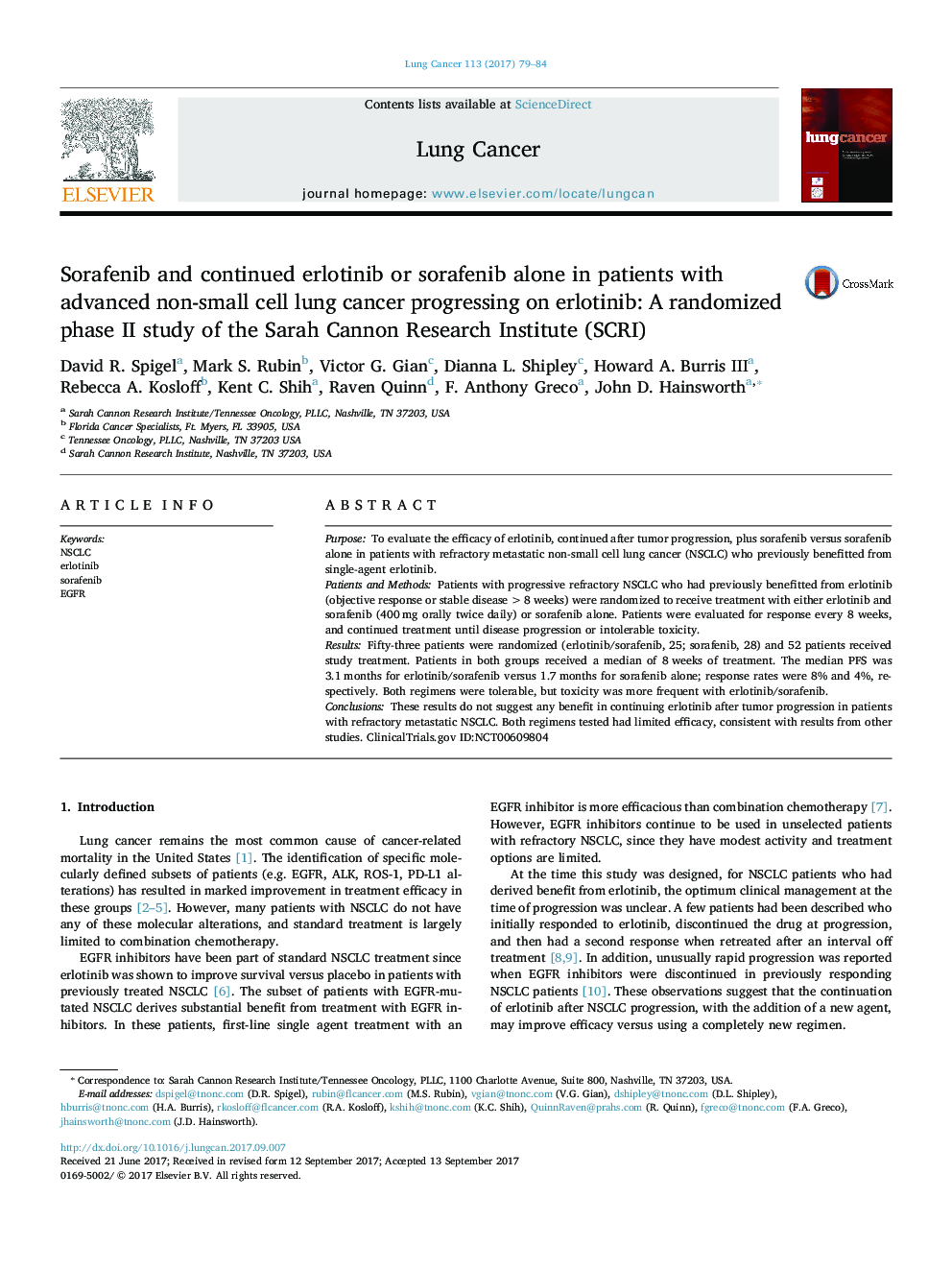| Article ID | Journal | Published Year | Pages | File Type |
|---|---|---|---|---|
| 5528082 | Lung Cancer | 2017 | 6 Pages |
â¢Single agent sorafenib and the combination of sorafenib plus erlotinib had limited activity in patients with refractory NSCLC.â¢Continuation of erlotinib post progression is unlikely to benefit NSCLC patients.â¢Both regimens used in the study were tolerable for patients.
PurposeTo evaluate the efficacy of erlotinib, continued after tumor progression, plus sorafenib versus sorafenib alone in patients with refractory metastatic non-small cell lung cancer (NSCLC) who previously benefitted from single-agent erlotinib.Patients and MethodsPatients with progressive refractory NSCLC who had previously benefitted from erlotinib (objective response or stable disease >8Â weeks) were randomized to receive treatment with either erlotinib and sorafenib (400Â mg orally twice daily) or sorafenib alone. Patients were evaluated for response every 8 weeks, and continued treatment until disease progression or intolerable toxicity.ResultsFifty-three patients were randomized (erlotinib/sorafenib, 25; sorafenib, 28) and 52 patients received study treatment. Patients in both groups received a median of 8Â weeks of treatment. The median PFS was 3.1Â months for erlotinib/sorafenib versus 1.7Â months for sorafenib alone; response rates were 8% and 4%, respectively. Both regimens were tolerable, but toxicity was more frequent with erlotinib/sorafenib.ConclusionsThese results do not suggest any benefit in continuing erlotinib after tumor progression in patients with refractory metastatic NSCLC. Both regimens tested had limited efficacy, consistent with results from other studies. ClinicalTrials.gov ID:NCT00609804
